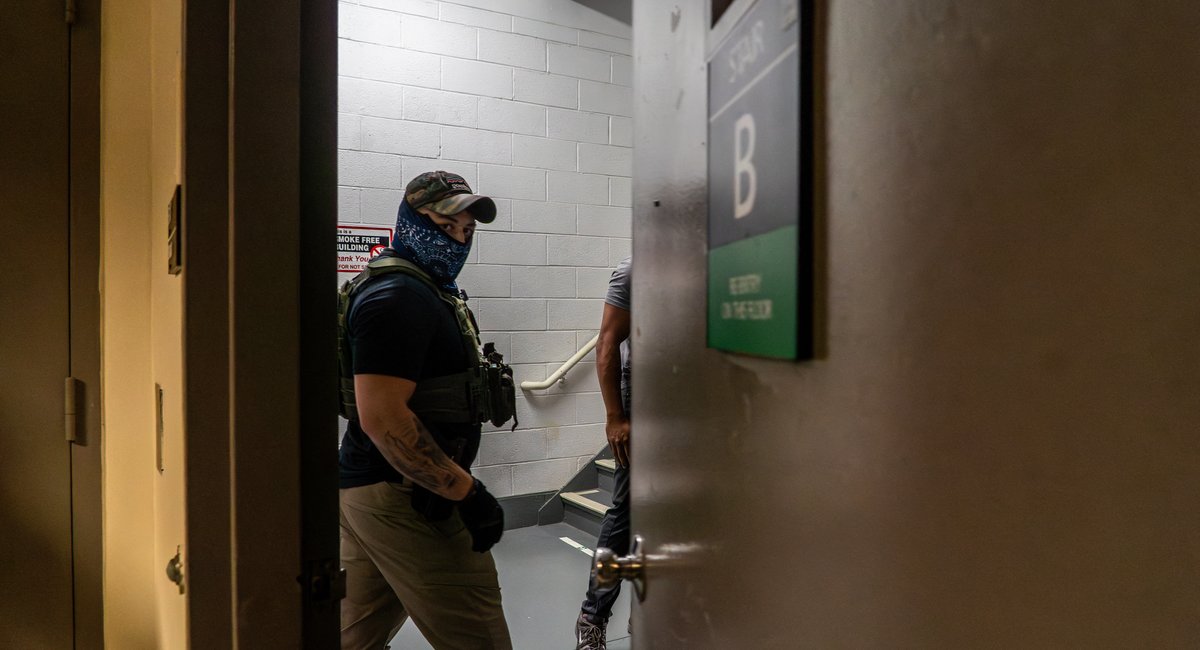A judge ruled Friday that immigration officials can continue making federal courthouse arrests in New York City for now, siding with the Trump administration against immigrant rights groups that challenged the practice.
District Court Judge P. Kevin Castel said African Communities Together and The Door — two nonprofit organizations that provide services to immigrant New Yorkers — failed to prove that U.S. Immigration and Customs Enforcement’s court arrest policy was unlawful or inconsistent with the agency’s past behavior.
In an August complaint filed in the Southern District of New York, the two groups wrote that, for decades, federal officials have generally avoided making civil arrests at courthouses as “such arrests chill access to the courts and impede the fair administration of justice.”
Put plainly, making a habit or show of detaining individuals at court often means people are scared into skipping their hearings.
Under former President Joe Biden, ICE itself declared courtrooms off limits to preserve access to justice. But in 2025, the Trump administration said arrests were necessary because local jails refuse to turn people over to ICE.
Castel, an appointee of former President George W. Bush, noted that ICE’s pattern of waiting outside immigration hearings is reasonable as outlined by the agency because it “reduces the risk of harm to ICE agents” and “reduces the resources necessary to locate the targeted individual.”
The ruling says, despite the changes in approach between the two administrations, the message was the same: ICE was and is allowed to be in courts.
City Comptroller Brad Lander was detained this summer at Federal Plaza where immigration hearings are held after trying to stop ICE officers from detaining a man.
“If Judge Castel spent just one hour at 26 Federal Plaza, he would see with his own eyes: the arrests there are quite clearly ‘arbitrary, capricious, or otherwise contrary to law.’” Lander said. “His decision to allow the cruel and lawless abduction of our neighbors to continue is deeply misguided — history will judge it badly.”
Castel did limit a Trump-era policy by making it more difficult for judges to immediately dismiss cases. That practice — which can be used to fast-track deportations — has now temporarily been blocked in Manhattan and Bronx immigration courts.
The New York Civil Liberties Union, which was among the groups who filed the suit, said that part of the ruling was a win.
“Today’s order rightly affirms that the Trump administration violated the law by directing immigration judges to deny noncitizens their day in court so that ICE can fast-track their deportation,” said Amy Belsher, the NYCLU’s director of immigrants’ rights litigation.
She said the group was looking forward to arguing the rest of its case in court.
“No one should be punished for following the law, or subject to such unlawful, unfair and unjust tactics,” Belsher said.
The ruling is also a loss for the Adams administration, which threw its support behind the immigration rights groups taking on ICE in a formal brief it filed in August.
“The City cannot effectively govern — for the benefit of all New Yorkers — if an entire class of residents are driven into the shadows,” city Corporation Counsel Muriel Goode-Trufant wrote in the brief. “The City cannot pretend that these residents do not exist.”
The case is just one piece of a complicated legal puzzle among the city, state, and federal governments when it comes to immigration proceedings and the legal rights of those detained.
A month ago, immigrants detained at 26 Federal Plaza filed a class-action lawsuit against Trump officials regarding the squalid conditions in the facility. And this week, New Yorkers are watching the fallout from the Supreme Court’s ruling that ICE agents are legally permitted to make immigration stops based on a person’s appearance.
Castel’s order is only temporary and immigration advocates can still push for a permanent block on courthouse arrests when the case goes to trial.
